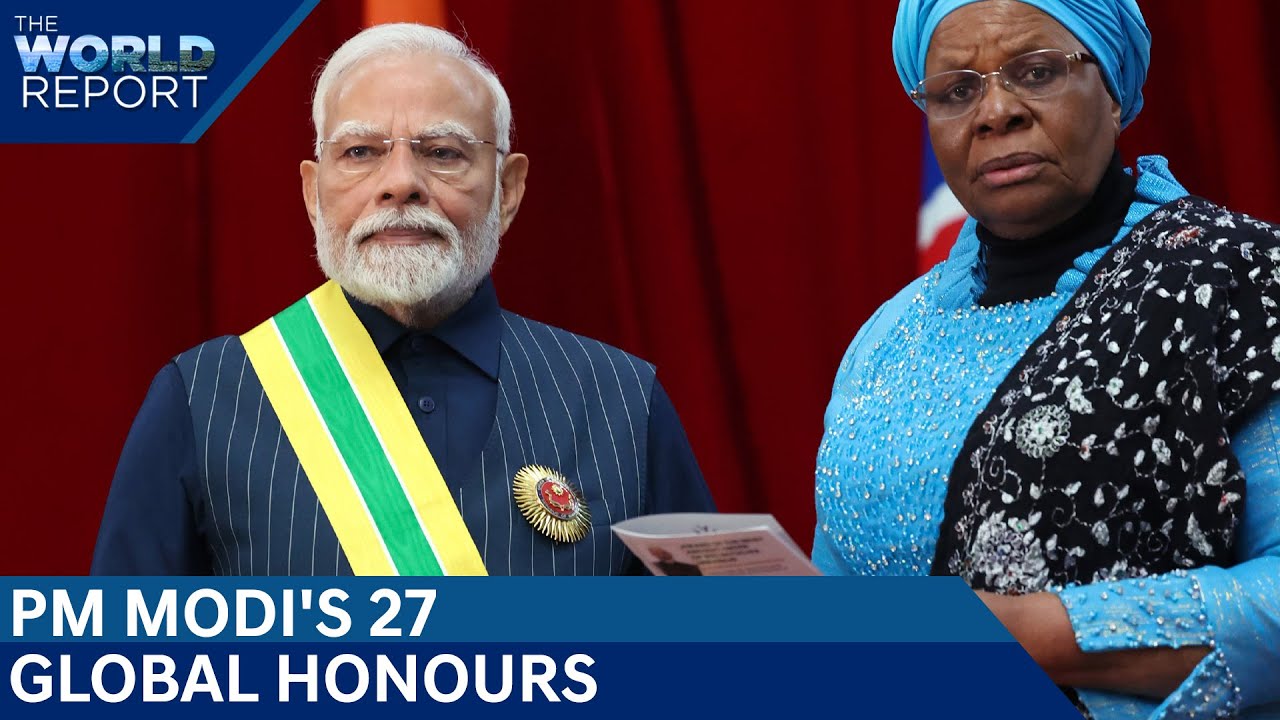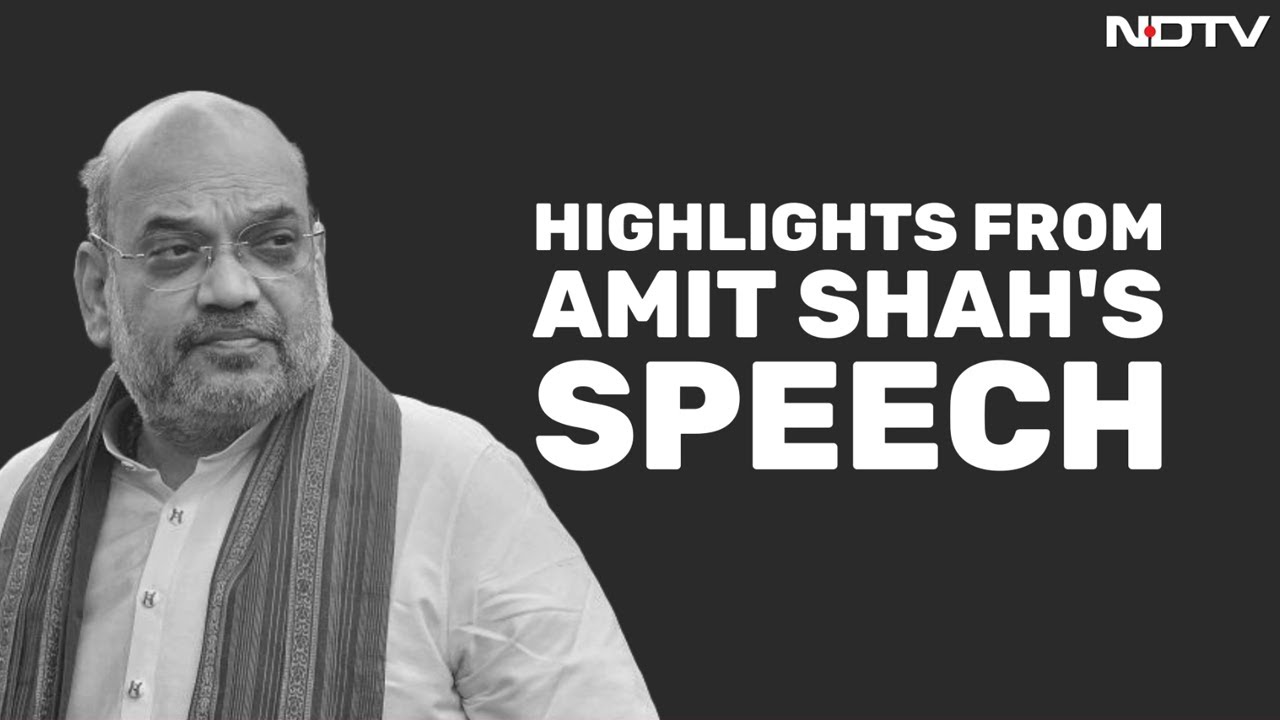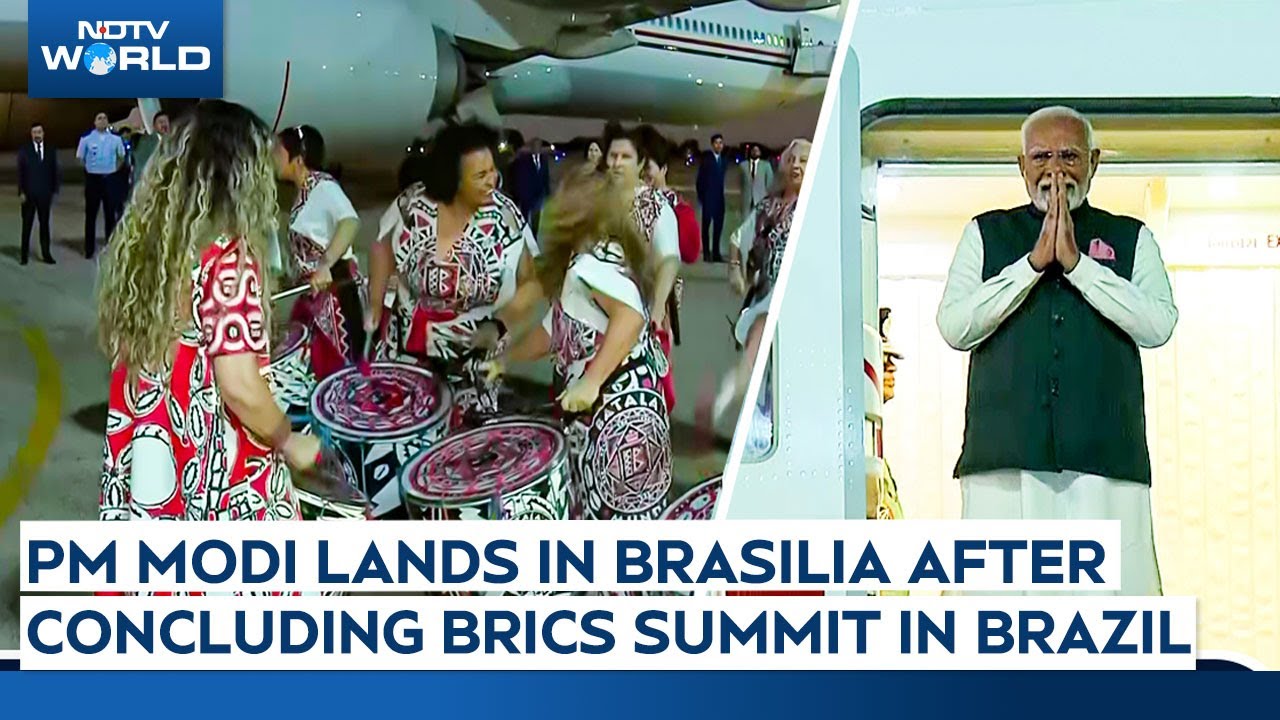"Lost Rs. 7,800 Crore Revenue Due To Tax Concessions," Says Centre
Finance Minister Nirmala Sitharaman announced reforms in seven key areas, including MGNREGA, healthcare and education, ease of doing business, in the fifth and final tranche of economic stimulus package to deal with the economic fallout of the COVID-19 pandemic. She also announced an increase in borrowing limit for states from 3 per cent to 5 percent. This would give them an additional Rs 4.28 lakh crore, said Union Finance Minister Nirmala Sitharaman, unveiling the Rs 20 lakh crore fiscal stimulus announced by Prime Minister to soften the blow of coronavirus and the lockdown on the economy. The Finance Minister had on Saturday announced a number of structural reforms in the coal, defence and civil aviation sectors. A day earlier, Ms Sitharaman had announced Rs 1 lakh crore Agri Infrastructure Fund for farm gate infrastructure for farmers and Rs 10,000 crore scheme for the formalisation of Micro Food Enterprises (MFEs) under the Rs 20 lakh crore stimulus package.
Here are the Highlights of Nirmala Sitharaman's announcements on Day 5:
As a nation, we stand at a very crucial juncture. Such a big disaster is a signal for India, it has brought a message and opportunity.
In order to prove the resolve of an Aatma Nirbhar Desh, land, labour, liquidity and laws have all been emphasised in the special economic package. The crisis and the challenge is an opportunity to build a self reliant India.
We will today be continuing in the series of reforms announced. Soon after lockdown, we came with PM Garib Kalyan Package, we provided food grains to those who needed it, we did not want to scout for money to search for grains.
Pulses too were given 3 months in advance. I appreciate the concerted efforts of Food Corporation of India (FCI), National Agricultural Cooperative Marketing Federation of India (NAFED) and states, giving pulses and grains in huge quantities, despite logistical challenges.
Under Pradhan Mantri Garib Kalyan Package, we used technology to do direct benefit transfer to people, we could do what we did because of the initiatives taken during the last few years.
One-time transfer of ₹ 2,000 has reached 8.19 crore farmers, total amount ₹ 16,394 crore. National Social Assistance Programme (NSAP) beneficiaries got ₹ 1,405 crore in first installment and ₹ 1,402 crore in 2nd installment, target of ₹ 3,000 crore nearly achieved.
When lockdown was extended, free grains and dal were given for another 2 months. Shramik special trains were started when it was possible for workers to move, states were requested to bring workers to stations, 85% cost was borne by central government.
This was done because, Jaan Hai To Jahaan Hai. Lives were given priority. In a post-COVID-19 era, livelihoods too have to come into full play. To take care of new considerations, our attempt is to ensure both lives and livelihoods.
We have taken seven measures today - 1) MNREGA, 2) Health - rural and urban, including education, 3) Businesses and COVID-19, 4) Decriminalization of Companies Act, 5) Ease Of Doing Business, 6) Public Sector Enterprises, 7) State governments and related resources.
Various sections of people were given assistance despite the lockdown, because of the reform initiatives which were undertaken by the Government during the last few years
On MNREGA
Large number of migrant workers are going back to their states. We are allotting additional Rs 40,000 crore to this scheme for migrants who have gone back to their home states. This is to ensure that these workers find jobs in their home states.
On Health (Rural and Urban) and Education
We should see the opportunity in this crisis. Health reforms and initiatives have been put in place. Investments in grass-root level will be ramped up
All districts to have infectious diseases block in hospitals. Lab networks in rural area are not adequate.
Special emphasis has been given to hospitals and labs - both privately and publicly funded.
Three channels already earmarked for school education,12 more channels to be added, of great help to children in both urban and rural areas. Technology has been used in a big way to continue education and enhance learning.
On Insolvency and Bankruptcy Code (IBC)
Many businesses were severely affected due to COVID-19. Debts related to COVID-19 shall not be considered under category of defaults, under Insolvency and Bankruptcy Code.
No fresh insolvency proceedings will be initiated up to 1 year.
For Micro, Small and Medium Enterprises or MSMEs, a special insolvency framework will be notified under section 240 A of IBC.
Insolvency proceedings limit have been raised to Rs 1 crore from Rs 1 lakh. We will move an ordinance and pass it in parliament once it is in session.
On Companies Act
Had announced compliance deadline extensions to avoid procedural defaults. We will decriminalise most sections of Companies Act.
Compoundable offence can be tried under internal adjudication mechanism rather than going to courts. This will de-clog courts too.
7 compoundable offences will be dropped and 5 to be dealt with under alternative framework. We will bring in an ordinance to this effect.
On Corporate Affairs - related reforms
This will help companies to directly list securities in foreign jurisdictions.
Listing of non-convertible debentures on stock exchange doesn't make them listed companies.
On Public Sector Enterprise Policy
Atma Nirbhar Bharat needs coherent policies. All sectors will be open to private sectors also.
We are coming up with policies wherein private sector will be allowed to operate in all sectors but public sector enterprises will continue to function.
Government will announce new policy - strategic sector and others. In those notified strategic sectors where public sector is present, at least one public will be present while private is also allowed to operate. Not more than 4 public sectors to be present in notified sectors. More than 4 will either be merged or brought together.
Private sector can slowly come in and compete in every sector. Details will be issued soon.
On supporting state governments
States are facing sharp decline in revenues. We have consistently given them the required support since they are at the frontend of fighting the pandemic.
Rs 46,038 crore was devolved based on budget.
Revenue deficit grants of Rs 12,390 crore were given on time to states in April-May.
State Disaster Response Fund (SDRF): Advance funds were released in the first week of April. Rs 11,092 crore SDRF fund released.
Health Ministry has released Rs 4,113 crore for funding anti-COVID activities.
During RBI video conference, we requested them and they increased ways and means to advance limits for states by 60%. Number of days a state can stay in continuous overdraft days increased from 14 days to 21 days and from 32 to 50 days quarterly.
Increase of 3% to 3.5% (of state GDP) in states' borrowing limit is unconditional; they have until now borrowed 14%. But now we have allowed them to borrow 75% in the first half. Next 1% increase to be released in 4 tranches, each one linked with specific reforms.
Increasing borrowing limit to 5% from 3% will give an additional Rs 4.28 lakh crore to states.
Here are the Highlights of Nirmala Sitharaman's announcements on Day 5:
As a nation, we stand at a very crucial juncture. Such a big disaster is a signal for India, it has brought a message and opportunity.
In order to prove the resolve of an Aatma Nirbhar Desh, land, labour, liquidity and laws have all been emphasised in the special economic package. The crisis and the challenge is an opportunity to build a self reliant India.
We will today be continuing in the series of reforms announced. Soon after lockdown, we came with PM Garib Kalyan Package, we provided food grains to those who needed it, we did not want to scout for money to search for grains.
Pulses too were given 3 months in advance. I appreciate the concerted efforts of Food Corporation of India (FCI), National Agricultural Cooperative Marketing Federation of India (NAFED) and states, giving pulses and grains in huge quantities, despite logistical challenges.
Under Pradhan Mantri Garib Kalyan Package, we used technology to do direct benefit transfer to people, we could do what we did because of the initiatives taken during the last few years.
One-time transfer of ₹ 2,000 has reached 8.19 crore farmers, total amount ₹ 16,394 crore. National Social Assistance Programme (NSAP) beneficiaries got ₹ 1,405 crore in first installment and ₹ 1,402 crore in 2nd installment, target of ₹ 3,000 crore nearly achieved.
When lockdown was extended, free grains and dal were given for another 2 months. Shramik special trains were started when it was possible for workers to move, states were requested to bring workers to stations, 85% cost was borne by central government.
This was done because, Jaan Hai To Jahaan Hai. Lives were given priority. In a post-COVID-19 era, livelihoods too have to come into full play. To take care of new considerations, our attempt is to ensure both lives and livelihoods.
We have taken seven measures today - 1) MNREGA, 2) Health - rural and urban, including education, 3) Businesses and COVID-19, 4) Decriminalization of Companies Act, 5) Ease Of Doing Business, 6) Public Sector Enterprises, 7) State governments and related resources.
Various sections of people were given assistance despite the lockdown, because of the reform initiatives which were undertaken by the Government during the last few years
On MNREGA
Large number of migrant workers are going back to their states. We are allotting additional Rs 40,000 crore to this scheme for migrants who have gone back to their home states. This is to ensure that these workers find jobs in their home states.
On Health (Rural and Urban) and Education
We should see the opportunity in this crisis. Health reforms and initiatives have been put in place. Investments in grass-root level will be ramped up
All districts to have infectious diseases block in hospitals. Lab networks in rural area are not adequate.
Special emphasis has been given to hospitals and labs - both privately and publicly funded.
Three channels already earmarked for school education,12 more channels to be added, of great help to children in both urban and rural areas. Technology has been used in a big way to continue education and enhance learning.
On Insolvency and Bankruptcy Code (IBC)
Many businesses were severely affected due to COVID-19. Debts related to COVID-19 shall not be considered under category of defaults, under Insolvency and Bankruptcy Code.
No fresh insolvency proceedings will be initiated up to 1 year.
For Micro, Small and Medium Enterprises or MSMEs, a special insolvency framework will be notified under section 240 A of IBC.
Insolvency proceedings limit have been raised to Rs 1 crore from Rs 1 lakh. We will move an ordinance and pass it in parliament once it is in session.
On Companies Act
Had announced compliance deadline extensions to avoid procedural defaults. We will decriminalise most sections of Companies Act.
Compoundable offence can be tried under internal adjudication mechanism rather than going to courts. This will de-clog courts too.
7 compoundable offences will be dropped and 5 to be dealt with under alternative framework. We will bring in an ordinance to this effect.
On Corporate Affairs - related reforms
This will help companies to directly list securities in foreign jurisdictions.
Listing of non-convertible debentures on stock exchange doesn't make them listed companies.
On Public Sector Enterprise Policy
Atma Nirbhar Bharat needs coherent policies. All sectors will be open to private sectors also.
We are coming up with policies wherein private sector will be allowed to operate in all sectors but public sector enterprises will continue to function.
Government will announce new policy - strategic sector and others. In those notified strategic sectors where public sector is present, at least one public will be present while private is also allowed to operate. Not more than 4 public sectors to be present in notified sectors. More than 4 will either be merged or brought together.
Private sector can slowly come in and compete in every sector. Details will be issued soon.
On supporting state governments
States are facing sharp decline in revenues. We have consistently given them the required support since they are at the frontend of fighting the pandemic.
Rs 46,038 crore was devolved based on budget.
Revenue deficit grants of Rs 12,390 crore were given on time to states in April-May.
State Disaster Response Fund (SDRF): Advance funds were released in the first week of April. Rs 11,092 crore SDRF fund released.
Health Ministry has released Rs 4,113 crore for funding anti-COVID activities.
During RBI video conference, we requested them and they increased ways and means to advance limits for states by 60%. Number of days a state can stay in continuous overdraft days increased from 14 days to 21 days and from 32 to 50 days quarterly.
Increase of 3% to 3.5% (of state GDP) in states' borrowing limit is unconditional; they have until now borrowed 14%. But now we have allowed them to borrow 75% in the first half. Next 1% increase to be released in 4 tranches, each one linked with specific reforms.
Increasing borrowing limit to 5% from 3% will give an additional Rs 4.28 lakh crore to states.
































